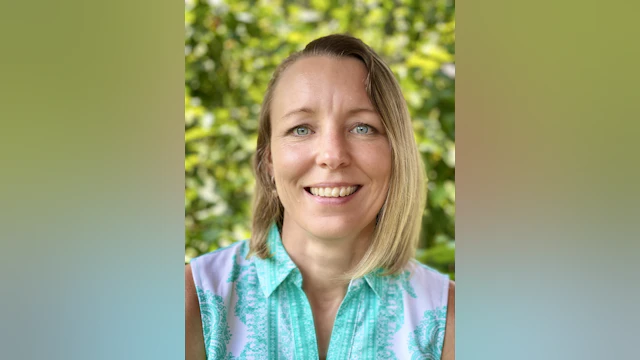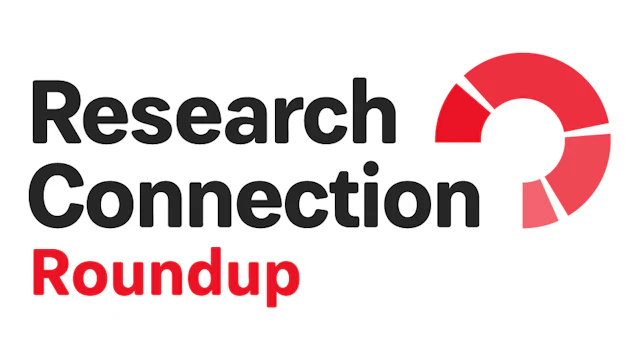The Research Roundup is a regular update of recently published findings in suicide prevention research. AFSP-funded studies included in this roundup examined how…
- College students who identified as at risk for suicide reviewed online mental health programs
- Three different methods of suicide prevention education impacted pharmacists’ learning outcomes
- Information sharing between hospitals and schools can improve reintegration following a suicide attempt, and
- A family history of depression is often associated with an elevated risk for suicidal ideation

Researcher: Jazmin Reyes-Portillo, PhD
Institution: Montclair State University
Grant Type: 2020 Pilot Research Grant – $30,000
Grant Title: Increasing Engagement of College Students At-Risk for Suicide in Online Intervention
Rates of depression, anxiety, and suicidal thoughts are rising among college students, yet many struggle to access traditional mental health care due to stigma, time constraints, and skepticism about treatment efficacy. Digital mental health interventions (DMHIs), including online programs, have emerged as promising tools to address these challenges by offering convenient, anonymous, and accessible support. However, low engagement and retention rates often limit their effectiveness. Understanding the barriers and facilitators to using DMHIs is crucial for improving these tools to better meet the needs of at-risk college students, particularly those from ethnoracially diverse backgrounds.
In her AFSP-funded study, Dr. Jazmin Reyes-Portillo and colleagues conducted four focus groups among an ethnoracially diverse group of 24 college students who identified as experiencing depression, anxiety, and/or suicidal thoughts and behaviors. An analysis of common themes in participant responses revealed barriers such as lack of motivation, perceived artificiality of online tools, and stigma concerns. The participants reported that potential facilitators such as human coaching, promotional campaigns, and peer normalization could help increase engagement in DMHIs. These findings highlight the importance of tailoring online interventions to be engaging, culturally sensitive, and supportive to effectively address the mental health needs of vulnerable college populations.
Citation: Reyes-Portillo, J. A., Judd, E., Martin, G., Kalver, A., Taveras, L., Rette, D., Lekas, H.-M., Escobar, M., Coyle-Eastwick, S., King, C. A., & Masia Warner, C. (2024). Increasing Engagement of College Students at Risk for Suicide in Online Intervention: A Qualitative Analysis. Journal Of Technology In Human Services, 42(2), 104-133. https://doi.org/10.1080/15228835.2024.2343699

Researcher: Delesha Carpenter, PhD, MSPH
Institution: University of North Carolina at Chapel Hill
Grant Type: 2020 Standard Research Grant – $100,000
Grant Title: Developing and Evaluating a Scalable Suicide Prevention Gatekeeper Training Program for Community Pharmacy Staff
Pharmacy staff are in a unique position to play a pivotal role in suicide prevention, as they frequently interact with patients who may be experiencing suicidal thoughts or behaviors. Given the accessibility and trust patients often place in their pharmacists, these healthcare professionals can act as key figures in early identification and intervention. Programs like Pharm-SAVES aim to equip pharmacy professionals with the necessary skills to identify and assist at-risk individuals, thereby expanding the reach of suicide prevention efforts within communities.
With her AFSP-funded grant, Dr. Delesha Carpenter aimed to evaluate different methods for training pharmacy staff in suicide prevention and determine their impact on learning outcomes. She compared written patient cases, prerecorded simulated patients (SPs), and live SPs to assess how each format influenced participants’ ability to identify suicide risk and take appropriate action. Dr. Carpenter found that while participants asked about suicide consistently across all evaluation methods, live SP interactions led to a higher frequency of referrals to the Suicide & Crisis Lifeline (988). Furthermore, live SPs facilitated more effective recognition and response to patient emotions. While prerecorded SPs and written cases offer cost-effective alternatives, live SPs were found to provide a more realistic environment for practicing the communication skills essential to suicide prevention. These findings highlight the importance of incorporating live simulations in training programs to develop the nuanced, empathetic skills necessary for addressing suicide risk in a community setting.
Citation: Marley, G., Lavigne, J. E., Cross, W., Gamble, A., Zhang, Z., & Carpenter, D. M. (2024). Comparing three methods to assess learning outcomes for a suicide prevention training program for pharmacy staff. PEC innovation, 5, 100348. https://doi.org/10.1016/j.pecinn.2024.100348

Researcher: Marisa Marraccini, PhD
Institution: University of North Carolina
Grant Type: 2018 Standard Research Grant – $99,990
Grant Title: School Re-entry Guidelines for Adolescents Post-Hospitalization for Suicidal Thoughts and Behaviors
Returning to school after hospitalization for a suicide attempt can be a critical transition period. These adolescents face challenges including social stigma, academic pressures, and the management of mental health symptoms. Schools and hospitals often miss opportunities to coordinate adequately, leaving gaps in communication that hinder a supportive reintegration process. Strengthening information sharing between these entities can help ensure continuity of care and better support for adolescents during this difficult time.
Dr. Marisa Marraccini interviewed 19 adolescents, their parents, school professionals, and hospital staff to explore barriers, facilitators, and recommendations for effective communication. identified key themes, such as balancing privacy with the need for information, tailoring information on a case-by-case basis, and fostering trust between families and institutions. Barriers like stigma and legal restrictions were noted, and strategies including appointing point persons and providing psychoeducation emerged as facilitators. These findings underscore the importance of collaborative, individualized approaches to school reintegration for adolescents recovering from suicide-related crises.
Citation: Marraccini, M. E., McGraw, C. B., Henderson Smith, L., Pittleman, C., Griffard, M., Vanderburg, J. L., Tow, A. C., Middleton, T. J., & Cruz, C. M. (2024). Information sharing between psychiatric hospitals and schools to better support adolescents returning to school following a suicide-related crisis. Journal Of School Psychology, 106, 101343. https://doi.org/https://doi.org/10.1016/j.jsp.2024.101343

Researcher: Milenna van Dijk, PhD
Institution: New York State Psychiatric Institute
Grant Type: 2020 Young Investigator Grant – $89,996
Grant Title: Frontal-Limbic Abnormalities and Early Life Stress in Susceptibility and Resilience to Suicide
Depression runs in families across generations, contributing to elevated risks for various psychiatric disorders in offspring, including anxiety, ADHD, and suicidal ideation. The intergenerational transmission of depression involves complex genetic and environmental pathways, with children from families affected by depression experiencing higher rates of mental health challenges at younger ages. Understanding the genetic mechanisms underlying this transmission is essential for advancing prevention and intervention strategies, especially as genetic tools like polygenic scores become available. Polygenic risk scores are numerical values that reflect the potential cumulative effect genetics for a specific trait or disease.
With her AFSP grant, Dr. Milenna van Dijk analyzed data from over 8,000 children in the Adolescent Brain Cognitive Development (ABCD) study to investigate the role of polygenic scores (PGSs) in mediating the association between family history of depression and psychopathology among offspring. Dr. van Dijk found that children with two generations of familial depression had significantly higher PGSs for depression, which contributed to their increased risk for psychiatric outcomes, including anxiety, suicidal ideation, and other psychiatric disorders. These findings underscore the genetic basis of depression and highlight the value gained by combining genetic and family history assessments.
Citation: Cha, J., Lee, E., van Dijk, M., Kim, B., Kim, G., Murphy, E., Talati, A., Joo, Y., & Weissman, M. (2024). Polygenic scores for psychiatric traits mediate the impact of multigenerational history for depression on offspring psychopathology. Research square, rs.3.rs-4264742. https://doi.org/10.21203/rs.3.rs-4264742/v1
Learn more about the AFSP research grants featured in this monthly roundup, as well as others, here.
